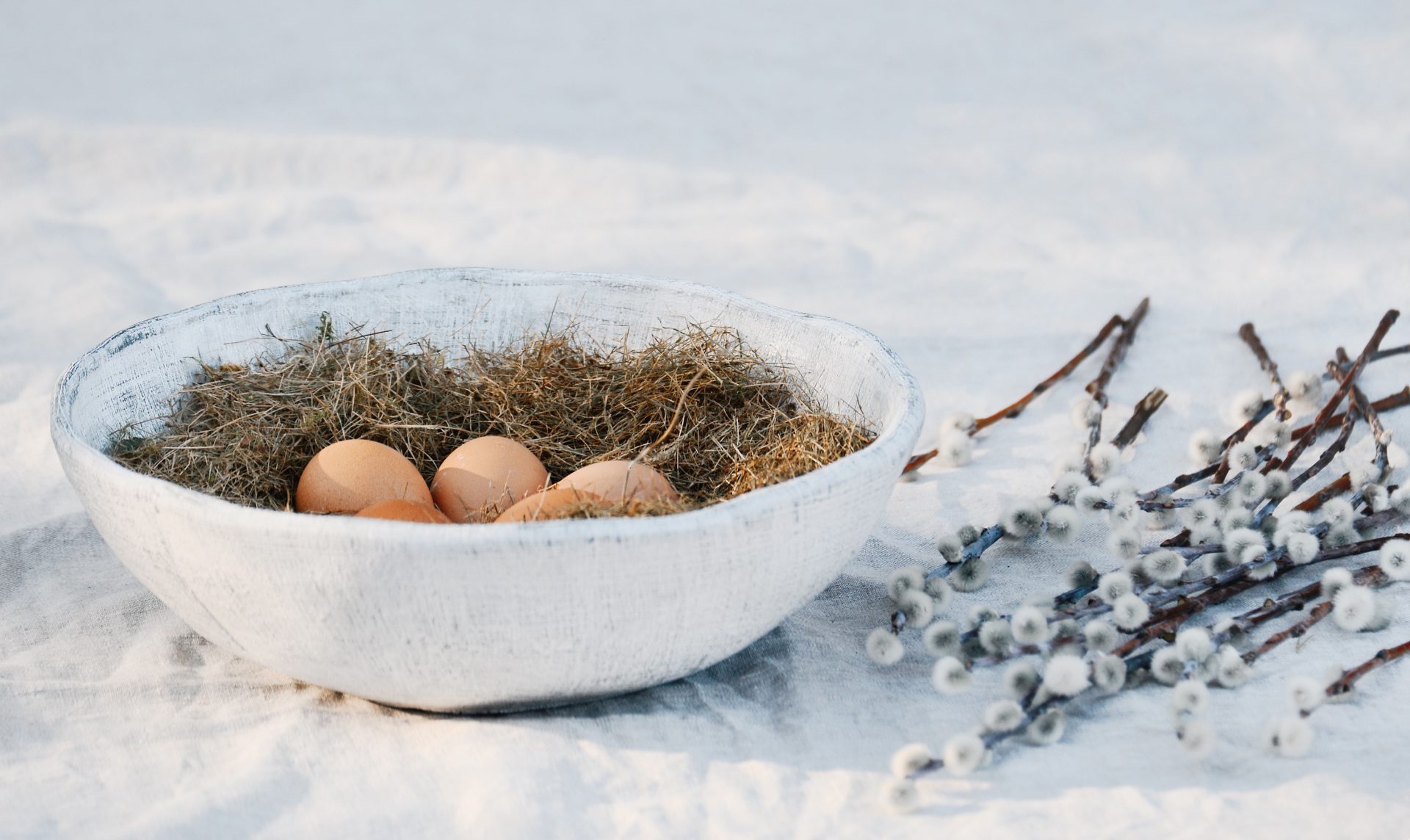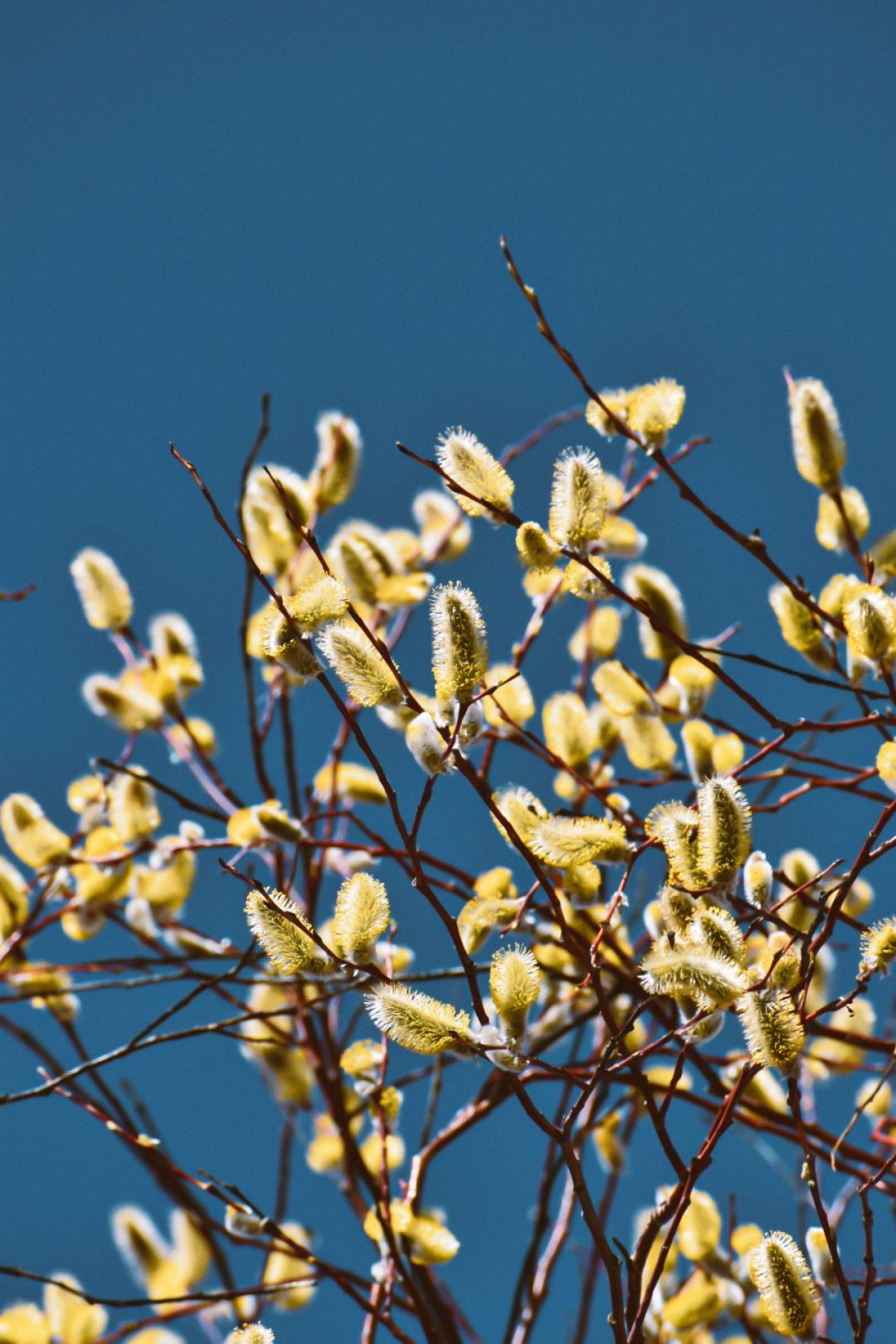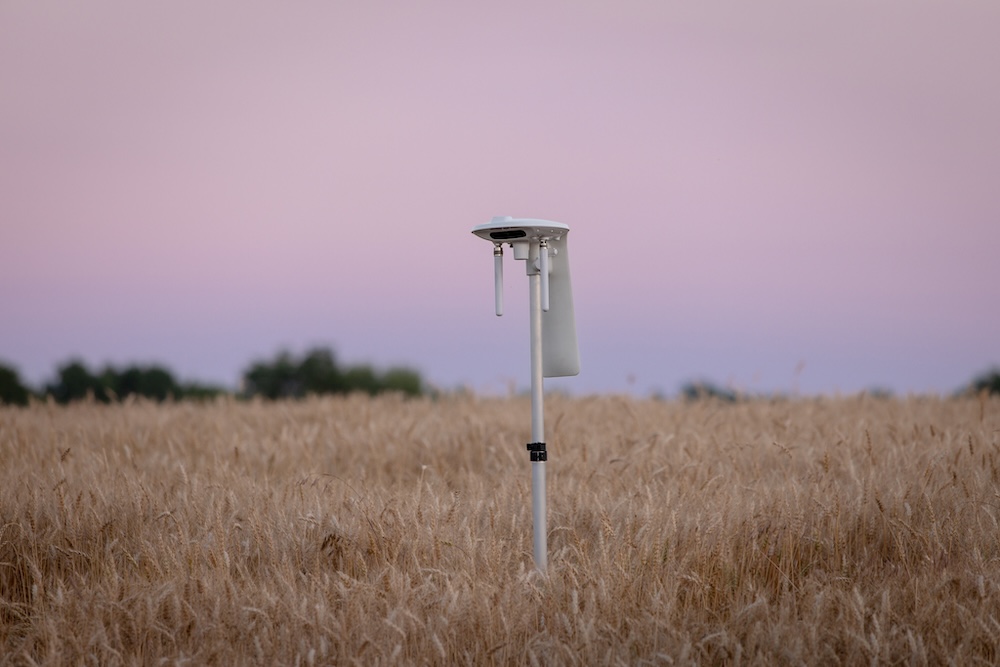Once a year on a Sunday morning, the first person out of bed gets to gently spank everyone else with a branch of the pussy willow. In Latvia, that’s not a prank – it’s a heartfelt tradition. Part of Pūpolsvētdiena, or Pussy Willow Sunday, this quirky springtime custom blends Christian Palm Sunday, Eastern Orthodox traditions, and ancient Latvian folklore to welcome health, beauty, and new life.

Why is Palm Sunday Called Pussy Willow Sunday in Latvia?
Although in most Christian traditions, the last Sunday before Easter is called Palm Sunday, in Latvia – as in several other Northern and Eastern European countries – it’s known as Pussy Willow Sunday, or Pūpolsvētdiena in Latvian.
Since palm trees don’t grow in Northern Europe, locals naturally substituted them with something more seasonally and regionally appropriate: the pussy willow (Salix caprea), which begins to bloom just before Easter and is one of the earliest signs of spring.








